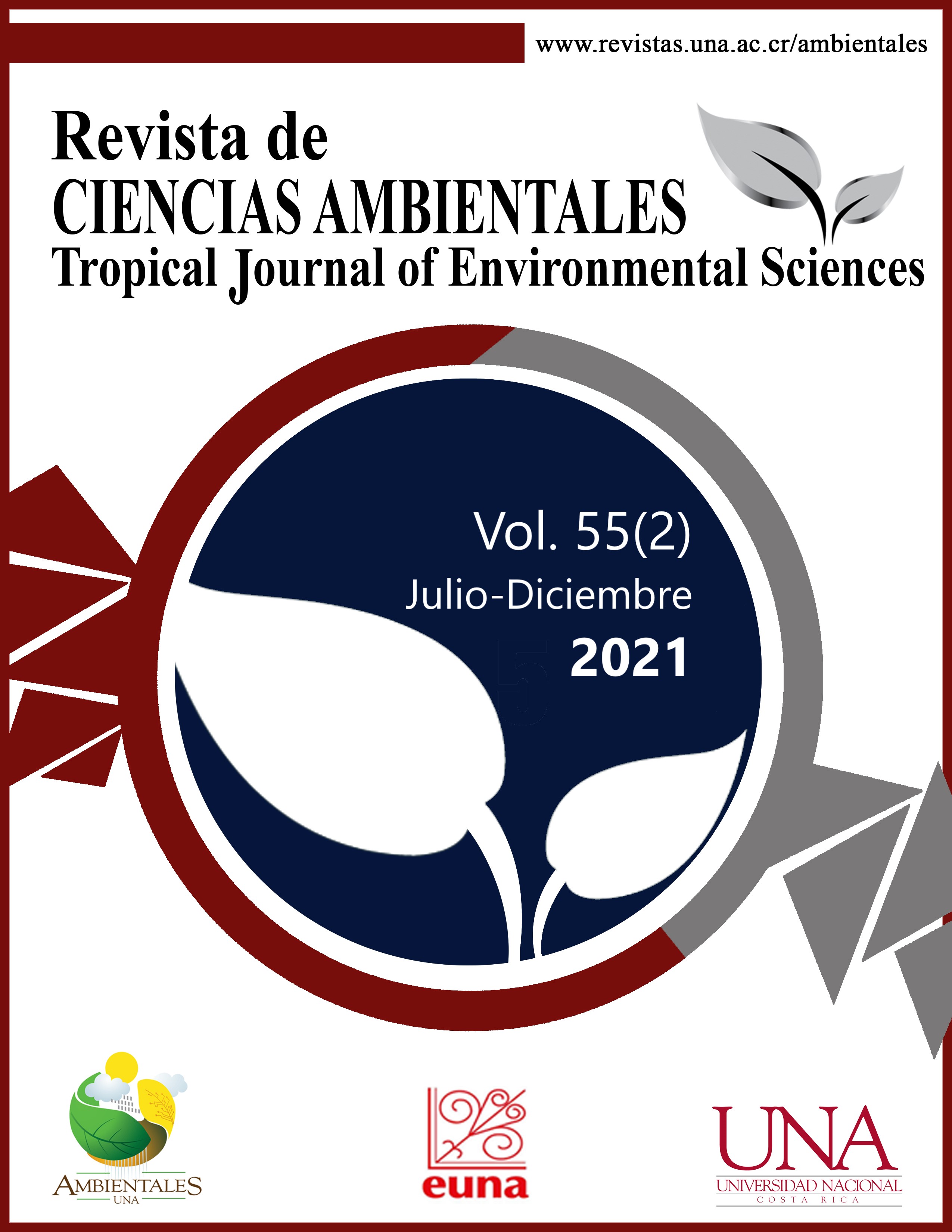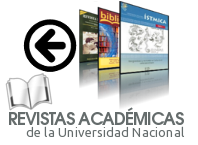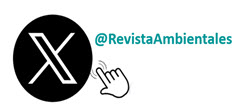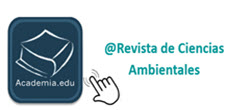Determination of Eco-Efficiency in Food Waste Generated at the Household Level: Pilot Case in Chile
DOI:
https://doi.org/10.15359/rca.55-2.14Keywords:
cost effectiveness, food consumption, home, sustainability, waste, water footprintAbstract
[Introduction]: The home is the link in the food chain that contributes the most to food waste in the world. In Chile, there are no data on the quantity and/or composition of the waste generated at the household level, and its environmental impact is unknown. [Objectives]: Determine eco-efficiency as an indicator of the environmental impact of food waste, based on the calculation of its water footprint (HH), caloric intake, and economic cost. [Methodology]: A descriptive pilot study of 15 middle/lower-middle socioeconomic level households in Santiago, Chile; it was conducted based on waste obtained by daily recording and weighing. The wastes were classified into vegetable and animal types according to their origin; their water footprint, caloric intake, and economic cost were determined. The data collected was used to calculate eco-efficiency (EE) according to three different equations. [Results]: The total waste generated was 54.7 kg in one week, with vegetable products responsible for 80.9 % of the total. The caloric value was 65,028 kcal (1,141 kcal per person), while the economic cost reached CLP 83,444 (USD 102.02). The HH was 112 136.66, with animal products responsible for 67.8 % of the total. In EE calculations, the worst results were related to the amount of waste of animal origin. [Conclusions]: Knowing the environmental impact of food waste at the household level in Chile is a fundamental step for developing public policies or educational campaigns to promote sustainable consumption.
References
Aleksandrowicz, L., Green, R., Joy, E. J. M., Smith, P., Haines, A. (2016). The Impacts of Dietary Change on Greenhouse Gas Emissions, Land Use, Water Use, and Health: A Systematic Review. PLoS ONE, 11(11): e0165797. https://doi.org/10.1371/journal.pone.0165797
Bengtsson, J., Bullock, J. M., Egoh, B., Everson, C., Everson, T., O’Connor, T., et al. (2019). Grasslands—more important for ecosystem services than you might think. Ecosphere, 10(2), 1-10. https://doi.org/10.1002/ecs2.2582
Carvalho, H., Cruz-Machado, V., Govindan, K., Azevedo, S. G. (2017). Modelling green and lean supply chains: An eco-efficiency perspective. Resour Conserv Recycling, 120, 75-87. https://doi.org/10.1016/j.resconrec.2016.09.025
Cerutti, A. K., Contu, S., Ardente, F., Donno, D., Beccaro, G. L. (2016). Carbon footprint in green public procurement: Policy evaluation from a case study in the food sector. Food Policy, 58, 82–93. https://doi.org/10.1016/j.foodpol.2015.12.001
Chalak, A., Abiad, M.G., Diab, M., Nasreddine, L. (2019). The Determinants of Household Food Waste Generation and its Associated Caloric and Nutrient Losses: The Case of Lebanon. PLoS ONE, 14(12): e0225789. https://doi.org/10.1371/journal
Chileagenda 2030. (2017) [website]. Informe de diagnóstico e implementación de la agenda 2030 y los objetivos de desarrollo sostenible en Chile. 2017. http://www.chileagenda2030.gob.cl/storage/docs/Diagnostico-Inicial_2.0_Agenda2030-ODS_2017.pdf
De Laurentiis, V., Hunt, D. V. L., Rogers, C. D. F. (2017). The little book of low carbon eating in the city. Lancaster: Lancaster University. http://www.energy.soton.ac.uk/files/2017/12/littlebookoflowcarboneatinginthecity.pdf
Ercin, A.E., Hoekstra, A.Y. (2014). Water footprint scenarios for 2050: A global analysis. Environment International, 64, 71-82. https://doi.org/10.1016/j.envint.2013.11.019
FAO. Food and Agriculture Organization. (2013). Food Wastage Footprint: Impacts on Natural Resources, Summary Report. Rome. http://www.fao.org/docrep/018/i3347e/i3347e.pdf
FAO. (2015). Food loss and waste facts. http://www.fao.org/savefood/recursos/infografia/es/
Feil, A.A., Schreiber, D. (2017). Sustentabilidade e desenvolvimento sustentável: Desvendando as sobreposições e alcances de seus significados. Cad. EBAPE BR, 15, 667–681. https://doi/10.1590/1679-395157473
GRAU. (2020). Green Restaurants Association University. Green Restaurant Certification Standards. http://www.dinegreen.com/restaurants/standards.asp.
Hatjiathanassiadou, M., de Souza, S. R. G., Nogueira, J. P., Oliveira, L. M., Strasburg, V. J., Rolim, P. M., Seabra, L. M. J. (2019). Environmental Impacts of University Restaurant Menus: A Case Study in Brazil. Sustainability, 11, 1157. https://doi.org/10.3390/su11195157
Hoekstra A. (2010). The water footprint: Water in the supply chain. Environmentalist. 1, 2.
Hölker, S., von Meyer-Höfer, M., Spiller, A. (2019). Animal Ethics and Eating Animals: Consumer Segmentation Based on Domain-Specific Values. Sustainability, 11, 3907. https://doi.org/10.3390/su11143907
Ilakovac, B., Voca, N., Pezo, L., Cerjak, M. (2020). Quantification and determination of household food waste and its relation to sociodemographic characteristics in Croatia. Waste Manag, 102, 231‐240. https://doi:10.1016/j.wasman.2019.10.042
INE. Instituto Nacional de Estadísticas. (2016). Jefatura de hogar: usos del concepto, historia, críticas y expresión en los indicadores. departamento de estudios sociales subdirección técnica instituto nacional de estadísticas. https://historico-amu.ine.cl/genero/files/estadisticas/pdf/documentos/jefatura_hogar.pdf
Mekonnen, M. M., Hoekstra, A. Y. (2011). The green, blue and grey water footprint of crops and derived crop products. Hydrol. Earth Syst. Sci. 15, 1577–1600. https://doi.org/10.5194/hess-15-1577-2011
ODEPA. Oficina de Estudios y Políticas Agrarias. (2020). www.odepa.gob.cl/precios/consumidor
R Core Team. (2020). R: A language and environment for statistical computing. R Foundation for Statistical Computing, Vienna, Austria. https://www.R-project.org/
Ribeiro, K. R., Rolim, P. M., Seabra, L. M. J., Strasburg, V. J. (2021). Evaluation of the ecoefficiency of greenhouse gases generation in the provision of complementary meals in a public hospital. Research, Society and Development, 10(4), e10110413995. https://doi.org/10.33448/rsd-v10i4.13995
Steffen, W., Richardson, K., Rockström, J., Cornell, S. E., Fetzer, I., Bennett, E. M., et al. (2015). Planetary boundaries: guiding human development on a changing planet. Science, 347(6223). https://doi.org/10.1126/science.1259855
Strasburg, V. J.; Jahno, V. D. (2015). Sustentabilidade de cardápio: avaliação da pegada hídrica nas refeições de um restaurante universitário. Am. Agua Interdiscip. J. Appl. Sci, 10, 903–914. https://doi.org/10.4136/ambi-agua.1664.
Strasburg, V. J., Jahno, V. D. (2017). Application of eco-efficiency in the assessment of raw materials consumed by university restaurants in Brazil: A case study. J. Clean. Prod, 161, 178-187. https://doi.org/10.1016/j.jclepro.2017.05.089
Strasburg, V. J., Fontoura, L. F., Bennedetti, L. V., Camargo, E. P. L., de Souza, B. J., Seabra, L. M. J. (2021). Environmental impacts of the water footprint and waste generation from inputs used in the meals of workers in a Brazilian public hospital. Research, Society and Development, 10(3), e22510313129. https://doi.org/10.33448/rsd-v10i3.13129
Thyberg, K. I., Tonjes, D. J. (2016). Drivers of food waste and their implications for sustainable policy development. Resour Conserv Recycl, 106, 110–123. https://doi.org/10.1016/j.resconrec.2015.11.016
Urteaga, C., Mateluna, A. (2003). Valor Nutricional de preparaciones culinarias en Chile. Universidad de Chile. Facultad de Medicina. Depto de Nutrición. Santiago, Chile
van der Werf, H. M. G., Garnett, T., Corson, M. S., Hayashi, K., et al. (2014). Towards eco-efficient agriculture and food systems: theory, praxis and future challenges. J. Clean. Prod, 73, 1-9. https://doi.org/10.1016/j.jclepro.2014.04.017
van der Werf, P., Seabrook, J. A., Gilliland, J. A. (2018). The quantity of food waste in the garbage stream of southern Ontario, Canada households. PLoS ONE, 13(6), e0198470. https://doi.org/ 10.1371/journal.pone.0198470
van Dooren, C., Janmaat, O., Snoek, J., Schrijnen. M. (2019). Measuring food waste in Dutch households: A synthesis of three studies. Waste Manag, 94, 153‐164. https://doi:10.1016/j.wasman.2019.05.025
von Massow. M., Parizeau, K., Gallant, M., Wickson, M., Haines, J., Ma, D.W.L., Wallace, A., Carroll, N., Duncan, A.M. (2019). Valuing the Multiple Impacts of Household Food Waste. Front. Nutr, 6(143). https://doi: 10.3389/fnut.2019.00143
WBCSD. World Business Council for Sustainable Development. (2000). Eco-efficiency: Creating More Value with Less Impact. Geneva: WBCSD.
Willett, W., Rockström, J., Loken, B., Springmann, M., Lang, T., Vermeulen, S., Garnett. T., Tilman, D., DeClerck, F., Wood, A., et al. (2019). Food in the Anthropocene: The EAT–Lancet Commission on healthy diets from sustainable food systems. Lancet, 393, 447–492. https://doi.org/ 10.1016/S0140-6736(18)31788-4
Xue, L., Liu, G., Parfitt, J., Liu, X., Van Herpen, E., Stenmarck, Å., et al. (2017). Missing Food, Missing Data? A critical review of global food losses and food waste data. Environ Sci Technol, 51, 6618–33. https://doi: 10.1021/acs.est.7b00401
Yu, Y., Hubacek, K., Feng, K., Guan, D. (2010). Assessing regional and global water footprints for the UK. Ecological Economics, 69, 1140-1147. https://doi.org/10.1016/j.ecolecon.2009.12.008
Zan, F., Dai, J., Hong, Y., Wong, M., Jiang, F., Chen, G. (2018). The characteristics of household food waste in Hong Kong and their implications for sewage quality and energy recovery. Waste Management, 74, 63-73. https://doi.org/:10.1016/j.wasman.2017.11.05
Published
How to Cite
Issue
Section
License

This work is licensed under a Creative Commons Attribution-NonCommercial-ShareAlike 4.0 International License.



















